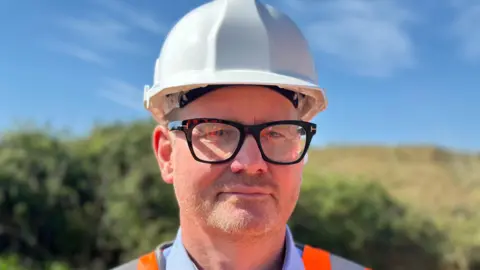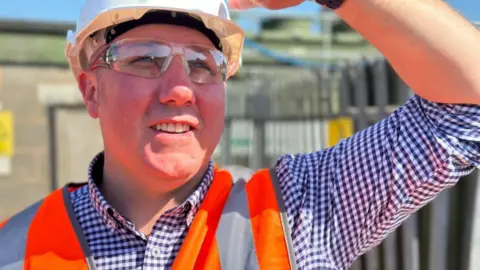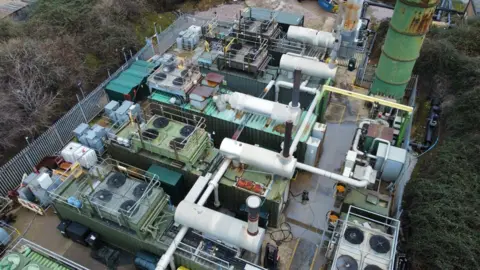Power plant bosses concerned as subsidy cuts loom
 BBC
BBCBosses of a biogas power plant in Warwickshire say they are worried about its future after the government revealed subsidies for the industry are to be axed.
Cotesbach Landfill Gas Project, near Rugby, traps methane from rotting organic rubbish in landfill and uses it to generate green energy.
David Rice, managing director of Melton CLP - which runs the site - said that when the renewable energy subsidy is withdrawn in 2027, it will force 87% of sites like this plant to "close overnight".
The Department for Energy Security and Net Zero said it was exploring options to support the sector meeting net zero targets as well as addressing the interests of bill-payers.
"Electricity produced from landfill gas generators plays an important role in increasing our energy security, while turning off the tap of future methane emissions and helping deliver net zero," it added.
Melton CLP also runs 18 other sites and said that each year the gas they capture would power about 90,000 homes across the country.
"Not only would you lose the benefit of the renewable energy that comes from them, but also you'd see an increase in methane emissions across the UK," said Mr Rice.

Paul Cleary, who owns the plant near Rugby, explained that he and his team mine for pockets of methane emitting from the waste.
Methane is generated by a number of things, including garden waste, kitchen scraps and nappies.
The gas is extracted and used to power large engines that, in turn, generate green electricity.
He told the BBC the plant's work was important.
"If we weren't here and you had the waste inside a landfill site, the methane would build in pressure and it would start to smell," he said.
"It would obviously create environment issues if no-one was here doing what we do."
 Melton CLP
Melton CLPOutside the industry, others are also concerned.
Liam Hardy, head of research at environmental charity Green Alliance, said the UK was signed up to several treaties promising to reduce methane emissions, and this industry was a vital part of doing that.
He told the BBC that if the industry collapsed because of the move by the government, it would be a "disaster" for climate change.
"Because it's also really short-lived in the atmosphere, actually tackling methane emissions can have an immediate effect," he said.
"We should be thinking of action on methane as the emergency brake on climate change."
Follow BBC Coventry & Warwickshire on BBC Sounds, Facebook, X and Instagram.
